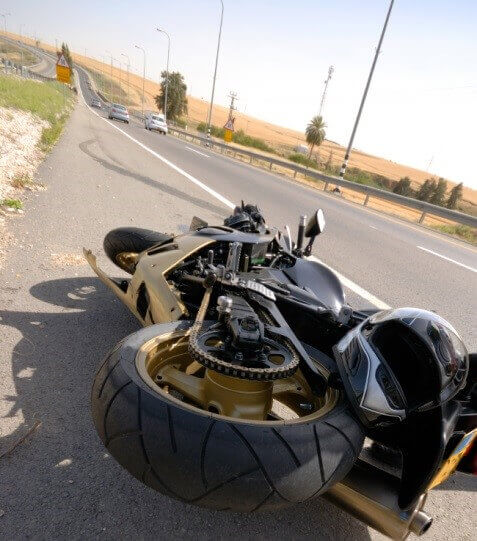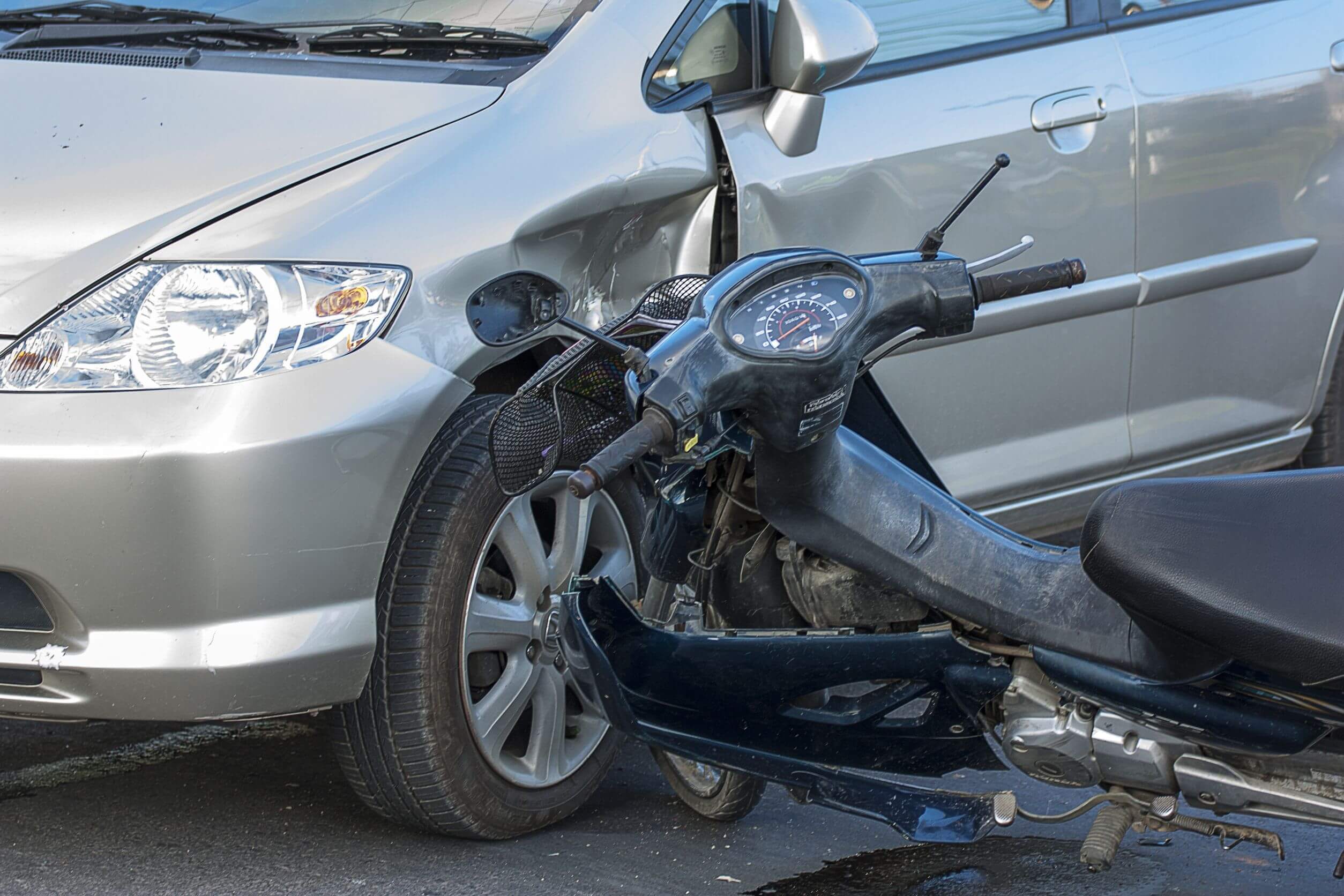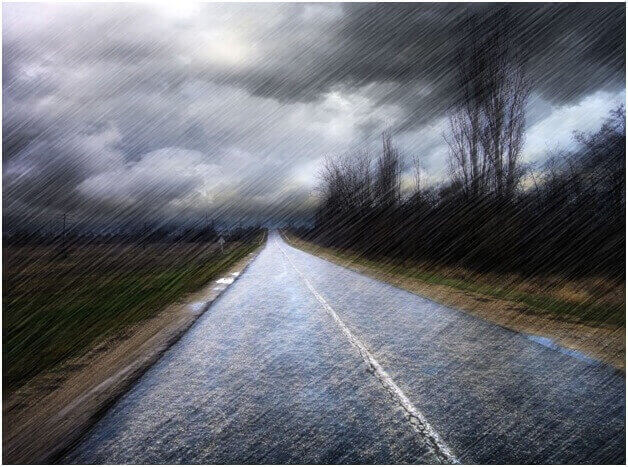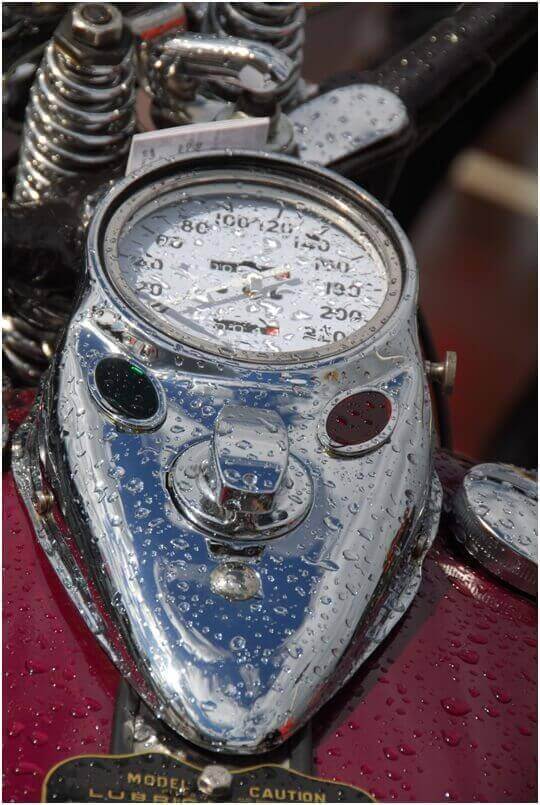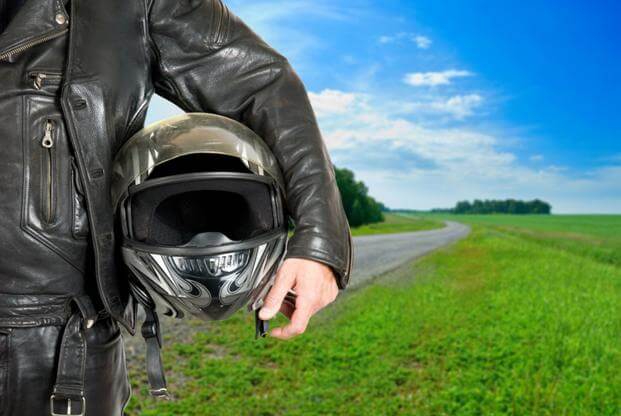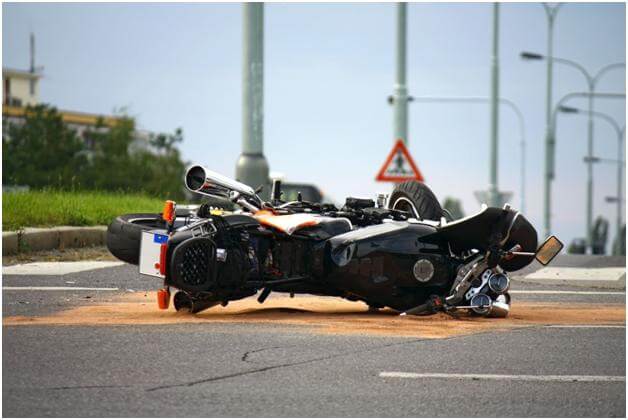When you’re driving a car, you might not really notice an uneven patch of road or a slick surface (although it never hurts to slow down). However, when you’re riding a motorcycle, even a seemingly small road hazard can result in a serious crash. And when a motorcyclist does crash, they have a lot less protection than someone in a car.
No motorcycle rider is immune to the risks of road hazards, even if they’ve been riding for years without incident. To help minimize your chances of being in an accident, familiarize yourself with some of the most common motorcycle road hazards so that you know what to watch out for.
Slick Surfaces
Rain and ice are common culprits behind slick roads, but motorcyclists should watch out for slick surfaces even if the sky is clear and the weather’s nice, since other liquids like oil spots and fresh paint can also cause a motorcycle to lose traction. Motorcyclists need to remember that whenever they see a slick road, they need to slow down and stay alert. Use both brakes, as relying on the front brake can cause motorcyclists to lose control and flip over their handlebars. Avoid the slickest area if possible, but don’t suddenly swerve to try to avoid an oil spot or other hazard.
Uneven Roads
Worn out roads or roads that are partially torn up while they’re under construction can be a huge hazard for motorcyclists. The publication Women Riders Now recommends staying in one lane as much as possible and watching out for divets (depressions in the road), which can cause a rider to lose control. If you commute on your motorcycle and regularly encounter rough roads, look for alternate routes when possible.
Loose Gravel
Gravel is particularly dangerous when it becomes unexpectedly deep or when a motorcycle rider hits gravel on pavement while going around a corner. If you can’t avoid a gravel road, it’s best to try to find the area of the road with the least dense gravel. Just like with slick roads, you should slow down and avoid relying solely on your front brake. However, you should also maintain some speed, as this will keep the bike more stable.
Animals
An animal running into the road is the worst nightmare of many motorcycle riders, especially those who live somewhere with a lot of deer. Sadly, collisions with deer or other large animals are often fatal for motorcyclists. If you notice a deer or other wild animal on the side of the road while you’re riding, be sure to cover your brakes, as there may be more ahead. Also keep an eye out for animal crossing signs, and come to a full stop if you see a large animal like a moose on the road ahead of you. Invest in good headlights if you’re planning on riding at night and, of course, wear a helmet (this applies to any time you plan to ride, not just when you’re planning on riding in an area where there may be wild animals).
Debris
It’s often hard to see and anticipate obstacles such as tree branches, large pieces of trash, or shredded car tires on the road until you get close to them. If you have enough room to move around the object instead of hitting it, you should do so—make sure there are no vehicles in your blind spot, lean in the direction you want to turn, and press the inside of the hand grip in order to stabilize yourself and hopefully avoid tipping. If you are unable to move around the debris, avoid braking suddenly. Hold the hand grips tightly, stay straight, and stand up slightly on your foot pegs to absorb some of the shock.
Keeping the Roads Safe
You should obviously do everything that you can to avoid an accident on your motorcycle, but if you do get into an accident, try not to panic. Get off the road as soon as possible, call for help, and get the medical attention you need. After you’ve received medical attention, think about what caused your accident. If it was something like a pothole or a road that suddenly turned rough with no warning sign, the city or county may be liable. Work with a personal injury attorney to hold the responsible party accountable; you may be able to recover compensation for your injuries and promote change so that your local roads are safer for other riders.
About the Author:
Jeffrey Braxton is a trial lawyer in Fort Lauderdale who has devoted his 22-year career to the practice of personal injury law. As lead trial attorney for The South Florida Injury Law Firm, Jeff has litigated thousands of cases and is a member of the Million Dollar Advocates Forum, an exclusive group of attorneys who have resolved cases in excess of one million dollars.







